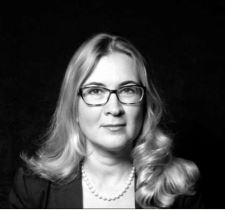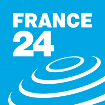Political Systems
At the end of the Cold War, the idea spread that liberal democracy was going to take over the world. In reality, authoritarian regimes have resisted, and political systems remain varied.

What is the state of democracy in Africa?
An interview with Olusegun Obasanjo, former President of Nigeria.


Désinfox: no, Europe is not under Germany's rule
Since the financial crisis of 2008, has the balance of power between France and Germany shifted in favor of Berlin? Does Angela Merkel alone decide on the conduct of the European Union? The answer obviously deserves to be nuanced.
Merkel and Macron betray weakness with cautious Aachen treaty
When Angela Merkel and Emmanuel Macron sign a new Franco-German treaty in the historic city of Aachen on Tuesday, there will be much soaring rhetoric about the deepening ties between the two countries. To critics, though, the Treaty of Aachen is thin gruel. Anyone hoping for a new, tighter alliance between France and Germany, and for signs that the two countries might once again drive European integration, will be disappointed.


Macron Seeks a Dose of Charlemagne to Renew Merkel Partnership
When France and Germany sign a treaty on Tuesday in the historic border town of Aachen, it will be the culmination of 16 months of work by French President Emmanuel Macron to bring the anchors of Europe closer.
The significance of the France-Japan partnership
A dialogue with Yoshiji NOGAMI, Vice-Chairman of the Japan Institute of International Affairs (JIIA).
Russia, France look for way out of geopolitical deadlock
On Thursday, Russian President Vladimir Putin and his French counterpart Emmanuel Macron are due to hold a meeting in St. Petersburg.


Macron Heads to Russia in European Effort to Salvage Iran Deal
French President Emmanuel Macron’s trip to Russia this week once threatened to split France from its European allies. Now it’s part of a wider European effort to tie President Vladimir Putin to the Iran nuclear accord.
The new Mao? China to lift term limits for President Xi Jinping
Does China now have a president for life? China's leader Xi Jinping could stay in power indefinitely following the ruling Communist Party's proposal to scrap term limits.
Day zero for Zuma? South Africa's president negotiates departure
It's a watershed moment for South Africa and the party of Nelson Mandela. The leadership of the African National Congress is expected to force out Jacob Zuma. Will the president go quietly? Can he negotiate a deal in the face of long-looming corruption allegations?
Jeffrey GOLDBERG - Trump: One Year After The Election
3 questions to Jeffrey GOLDBERG, Editor in Chief, The Atlantic
Political and Economic Effects of Qaddafi's Death on Chad
On 24 August 2011, President Idriss Déby Itno of Chad recognised the National Transitional Council (NTC) as the only legitimate authority in Libya. Until then, the Chadian president had been a firm ally of the Guide of the Great Jahamiriya, President Qaddafi of Libya. Déby had sustained his long-time friend and helper with military equipment and soldiers from Chad from the beginning of the uprisings.
States' Power in the European Union
On an initiative of the IP-Journal of the German Council of Foreign Relations (DGAP), the Study Committee for Franco-German Relations (Cerfa) of the French Institute of International Relations (IFRI) and the Polish Institute of International Affairs (PISM) are regularly publishing short contributions on a common subject, written by three experts of these institutes. The purpose of these “Weimar Triangle Analyses” is to give the French, Polish and German views on central questions of European politics and European integration.
ASEAN-India Political Cooperation: How to reinforce a much-needed pillar?
India is one of Southeast Asia’s principal neighbors and there is certainly great potential for cooperation with the region and its institutional representation, ASEAN. But does India properly exploit this opportunity? Is Southeast Asia satisfied with the level of engagement?
China's Two-Track Foreign Policy: From Ambiguous to Clear-Cut Positions
This analysis examines the current ambiguities, priorities and approaches of Chinese foreign policy from a practitioner’s perspective, taking into account experiences of Beijing-based diplomats (interviews conducted in 2011 and 2012), in addition to recent Chinese foreign policy positions and official communications.
It leads to the following conclusions:
What Role for the EU in Doha?
Historical leader of the fight against climate change, the European Union’s influence declined in Copenhagen. This opened the way to the so-called BASIC countries to show their willingness to become a driving force in the international climate agenda. Interestingly enough, the Copenhagen conference also introduced a welcome shift in the traditional UN separation between developed and non-developed countries.
Challenges and Opportunities of a EU-Taiwan ECA: A Review of Political-Economic Perspectives
Concerns over becoming marginalized in the course of East Asian economic integration are driving a proactive regional trade agreement (RTA) strategy on the part of Taiwan. Three factors explain this concern: Competing visions of economic integration in the region from both the United States and China, the success of Korea in concluding a large number of important RTAs, and the increasing number of overlapping agreements that crowd out countries and economies such as Taiwan that do not have proactive RTA strategies.
Temporary Workers or Permanent Migrants? The Kafala System and Contestations over Residency in the Arab Gulf States
The Arab Gulf is the third largest receiving region for global migrants (after North America and the European Union). The six states of the Gulf Corporation Council (GCC) are the richest Arab economies, boast some of the highest GDP per capita rankings in the world, and they all depend upon guest workers in virtually every economic sector. Guest workers have played an integral role in the Gulf since the 1970s, supplying the skills and manpower needed to implement ambitious development plans.
Crossing the line: A new status quo in the East China Sea?
The decision of the Japanese Government to purchase a number of the Senkaku/Diaoyu islands from their private owner sparked fury in Beijing. Such spikes of fever between China and Japan are not without precedent. However, the gravity of this latest episode raises the question of whether a point of no return has been reached in the Sino-Japanese relationship.
The GCC States of the Persian Gulf and Asia Energy Relation
Since the 2000s, China and India's needs for hydrocarbons, coming on top of those of older industrialized Asian countries (Japan and South Korea), have considerably strengthened customer-supplier links between Asia in general and the Persian Gulf, in the energy field.
Support independent French research
Ifri, a foundation recognized as being of public utility, relies largely on private donors – companies and individuals – to guarantee its sustainability and intellectual independence. Through their funding, donors help maintain the Institute's position among the world's leading think tanks. By benefiting from an internationally recognized network and expertise, donors refine their understanding of geopolitical risk and its consequences on global politics and the economy. In 2024, Ifri will support more than 70 French and foreign companies and organizations.













